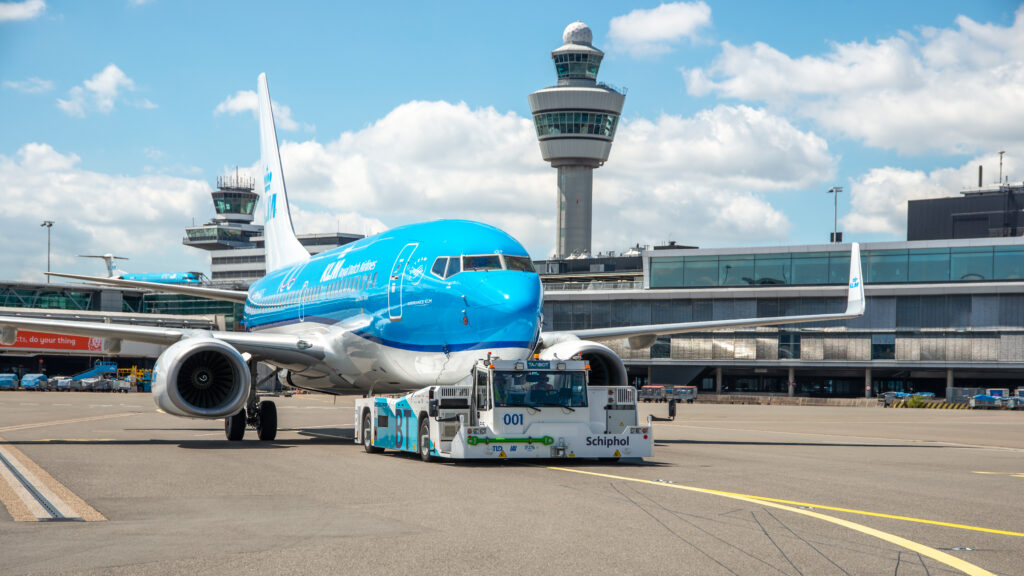Amsterdam Airport Schiphol in the Netherlands is set to become Europe’s first air hub to purchase two TaxiBot towing vehicles that can be used to help reduce fuel consumption and emissions when taxiing.
The sustainable taxiing process takes aircraft to and from the runway using a special towing vehicle; the aircraft engines stay largely switched off.
A previous trial at Schiphol showed that sustainable taxiing leads to around 50% less fuel consumption and therefore reduces CO2 , nitrogen and ultrafine particle emissions. Given the distance involved, Schiphol believes that fuel savings could reach up to 65% when aircraft taxi to the Polderbaan runway.
Manufactured by Smart Airport Systems, the TaxiBots will arrive at the airport in mid-2022. The special vehicles are currently in use at two Indian airports.
Airport operator Royal Schiphol Group has drawn up a plan together with Air Traffic Control the Netherlands (LVNL), KLM, Transavia, Corendon Dutch Airlines and ground handling companies dnata and KLM Ground Services to ensure that sustainable taxiing will become standard procedure at Schiphol. The first step will be the deployment of the two aircraft towing vehicles for a follow-up trial at Schiphol, in which TUI, Viggo and Swissport will also participate. This is part of a European initiative – the ALBATROSS project – aimed at developing and demonstrating more sustainable flight operations. The live trial will transition to a standard procedure, with certain types of aircraft taxiing sustainably to and from the Polderbaan runway.
Dick Benschop, CEO of Royal Schiphol Group, said, “2022 is a crucial year for sustainability in the aviation sector. We are accelerating measures to reduce emissions and improve local air quality. That’s important for the climate, our employees and local residents. We’re Europe’s first and one of the few airports worldwide working on implementing sustainable taxiing on a large scale. Schiphol is a front-runner, which makes me proud.”
Modifications to infrastructure are already underway, with new markings on the asphalt that ensure aircraft stop in the right place to be disconnected from the towing vehicle. Roads also need to be widened to enable the vehicles to drive to and from the runway before and after taxiing has taken place without disrupting other traffic.
Royal Schiphol Group has said that it aims to have an emission-free ground operation at its Dutch airports by 2030.

